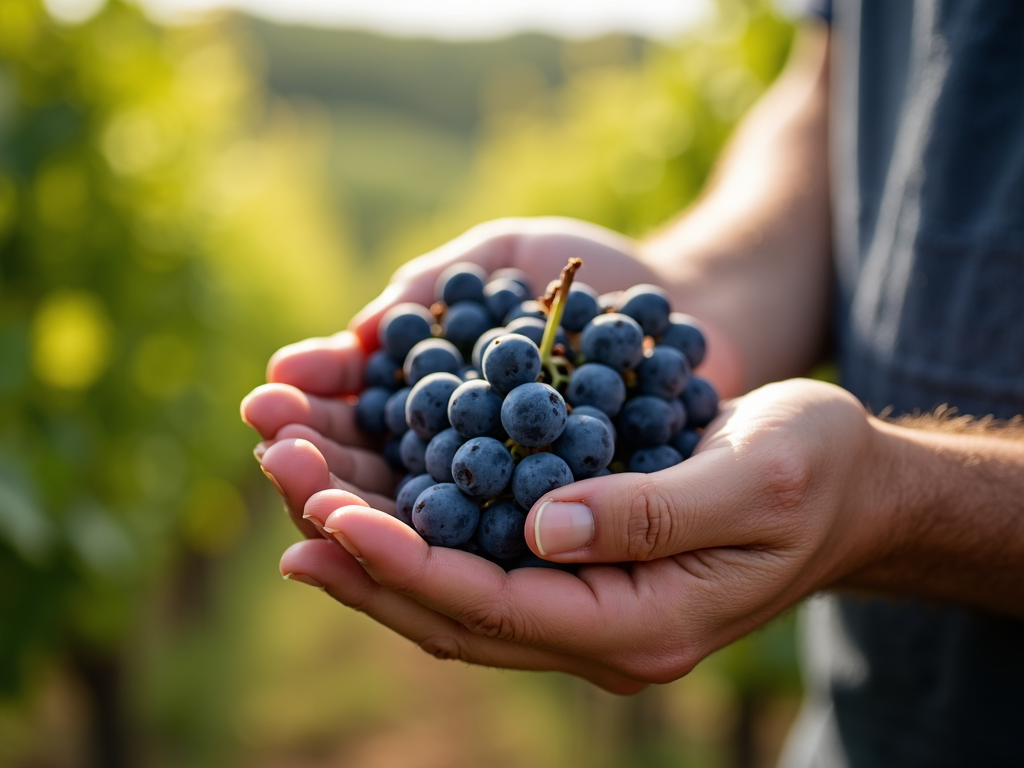Exploring Organic Wine Benefits
Organic wine is more than just a trend; it's a commitment to sustainability and health. This article delves into the benefits of organic wine, exploring why vineyards like those of Jackson Family Wines are leading the way in this eco-friendly movement.

When you sip a glass of organic wine, you're not just tasting the fruit of the vine; you're experiencing the result of meticulous care and dedication to the environment. Organic vineyards, such as those managed by Jackson Family Wines, prioritize sustainable practices that benefit both the land and the consumer. But what exactly makes organic wine different, and why should you consider making the switch?
Environmental Benefits
Organic wine production starts in the vineyard, where the focus is on nurturing the soil and the ecosystem. Unlike conventional vineyards, organic ones avoid synthetic pesticides and fertilizers. Instead, they use natural alternatives like compost and cover crops to enrich the soil and promote biodiversity. This approach not only preserves the health of the vineyard but also supports local wildlife and reduces pollution.
For example, Jackson Family Wines has implemented innovative techniques such as using sheep to manage weeds and cover crops to prevent soil erosion. These practices not only reduce the need for chemical interventions but also create a more balanced and resilient ecosystem.

Health Advantages for Consumers
Beyond the environmental benefits, organic wine offers potential health advantages. Organic wines are made without the use of synthetic additives, which means fewer chemicals make their way into your glass. Additionally, some studies suggest that organic wines may contain higher levels of antioxidants, such as resveratrol, due to the natural stress the vines endure without chemical aids.
However, it's important to note that while organic wines are free from synthetic pesticides, they can still contain sulfites, which are naturally occurring in wine. If you're sensitive to sulfites, look for wines labeled 'no added sulfites,' though these are less common.
The Role of Jackson Family Wines
Jackson Family Wines is a pioneer in the organic wine movement. With a portfolio that includes renowned brands like Kendall-Jackson and La Crema, they have committed to sustainable and organic practices across their vineyards. Their dedication is evident in their use of renewable energy, water conservation efforts, and organic farming certifications.
Visiting one of their vineyards, you can see firsthand the care they put into every aspect of production. From the solar panels powering their facilities to the workers hand-picking grapes, it's clear that sustainability is at the heart of their operation.

Why Organic Vineyards Matter: A Deep Dive
Organic vineyards are not just about producing wine; they're about preserving the land for future generations. By avoiding synthetic chemicals, organic vineyards maintain soil health, which is crucial for long-term productivity. Healthy soil supports a diverse range of microorganisms that help vines thrive naturally.
Moreover, organic practices contribute to climate change mitigation. By reducing the use of fossil fuel-based inputs and promoting carbon sequestration through cover crops, organic vineyards can lower their carbon footprint. This is a significant step towards a more sustainable wine industry.
Personal Insights and Experiences
I remember my first visit to an organic vineyard. The air was crisp, and the scent of earth and grapes was intoxicating. As I walked through the rows of vines, I noticed the abundance of insects and birds, a stark contrast to conventional vineyards I've visited. The vintner explained how they use natural predators to control pests, creating a harmonious balance.
Tasting the wine, I could sense the purity and depth of flavor. It was as if the wine told the story of the land it came from, untainted by synthetic interventions. This experience solidified my belief in the value of organic wine.

Comparing Organic and Conventional Wine Production
To better understand the differences, let's look at a comparison between organic and conventional wine production methods:
| Aspect | Organic Wine Production | Conventional Wine Production |
|---|---|---|
| Pesticides | Natural alternatives like compost and predators | Synthetic pesticides |
| Fertilizers | Organic compost and cover crops | Synthetic fertilizers |
| Additives | Minimal, natural additives | Synthetic additives and preservatives |
| Soil Health | Prioritizes soil biodiversity and health | May deplete soil nutrients over time |
| Environmental Impact | Lower carbon footprint, supports biodiversity | Higher use of chemicals, potential for pollution |
This table highlights the key differences, showing why organic wine is often considered a more sustainable choice.
Conclusion
Exploring the benefits of organic wine reveals a world where sustainability and quality go hand in hand. From the environmental advantages to the potential health benefits, organic wine offers a compelling alternative to conventional options. Vineyards like those of Jackson Family Wines are setting the standard for what wine production can and should be.
Whether you're a wine enthusiast or simply curious about sustainable practices, organic wine is worth exploring. Next time you raise a glass, consider the story behind the wine and the positive impact your choice can have on the planet.